There are many water softener benefits but perhaps the biggest advantage is that it can prevent hard water. By installing a water softener, you can stop all sorts of potential issues that come with mineral-heavy hard water before they start.
So if you’re wondering, why use a water softener? You’ve come to the right place. We’ll explain what a water softener is, what it does, and why you should consider having one in your home or property.
Benefits of Water Softener
If you have hard water, installing a water softener is a good idea. Don’t believe us yet? Just check out our list of water softener benefits!
1. Lower Water Bills
If hard water was causing limescale buildup in your pipes, then installing a water softener may lower your water bills. Your home will pull less groundwater to fill tubs, dishwashers, and washing machines, lowering your bill overall.
2. Softer Skin
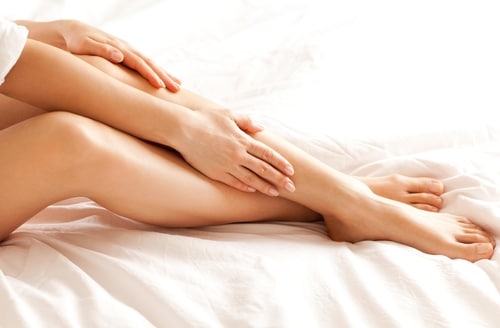
With softer water, body soap dissolves easily. So less of it remains on your skin. That can leave you with a softer, smoother, and brighter complexion.
Plus, you’ll probably get away with less lotion and skin creams after a shower. That saves money in the long term!
3. Use Less Soap
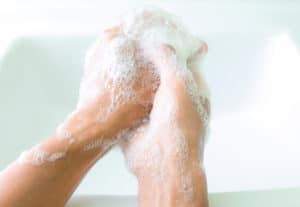
Soap lathers up better in soft water than it does in hard water, so you can use less of it. That goes for everything from washing your hands to your clothes and plates.
Many find that they can use far less detergent and dish soap when they install a water softener.
4. Shiny Hair
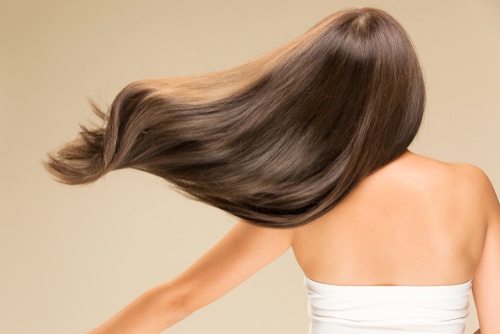
Soft water more easily penetrates hair follicles than soft water does. That means showering in soft water leads to smoother and shinier hair.
And, because your shampoo will get sudsy faster, you can use less product overall. That tends to lead to healthier hair and scalps in general.
5. Less Scum
Installing a water softener could be the end of limescale scum on your faucets, fixtures, and sinks. Sure, all you had to do was wipe it off with vinegar before, but that gets annoying.
With a water softener, those annoying white blotches will be a thing of the past!
6. No More Spotted Stemware
Serving drinks in spotted glassware is embarrassing. Though hard water stains hardly affect taste, white spots give the impression of dirty glasses.
A water softener will put an end to that, and it’ll keep your glasses around longer too. Hard water weakens glassware, but soft water ensures they’ll last unless you drop them, of course.
7. Brighter Laundry
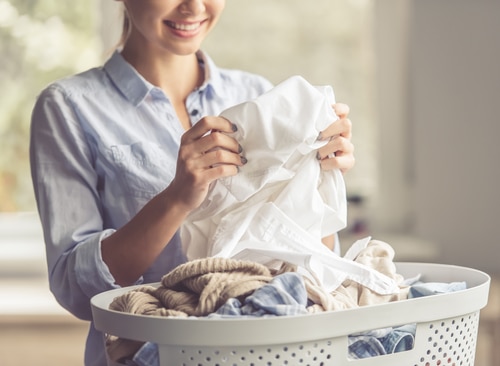
We already mentioned you can get away with using less detergent once you install a water softener. Your laundry will also be more color-fast.
Hard water fades clothing quickly, as do harsh detergents. Soft water with less detergent will give you clothes that are brighter for longer, so you can wear your favorite outfits for years to come!
Plus, soft water keeps whites whiter. If you’ve ever noticed your once white shirt is now a dingy grey, hard water could be to blame. A water softener will help keep your whites pristine and bright.
8. Better Tasting Water
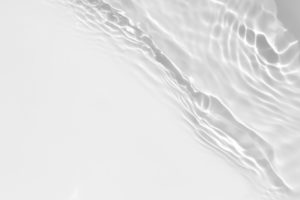
Soft water tastes better than hard water to most people. So installing a water softener could get you to drink more fluids; no water bottles necessary.
It will also make your food taste better. Bread dough, boiled pasta, soups, and stews are all impacted by water mineral content. Softer water gives better culinary results.
9. Protected Pipes
Best of all, a water softener will protect your pipes and appliances. You won’t have to worry about limescale buildup that clogs or erodes your plumbing.
You’ll also get a longer life from any water-using appliances. Coffee makers, dishwashers, and washing machines will all last longer when you use soft water.
Related: Water Softener Alternatives
What Does a Water Softener Do?
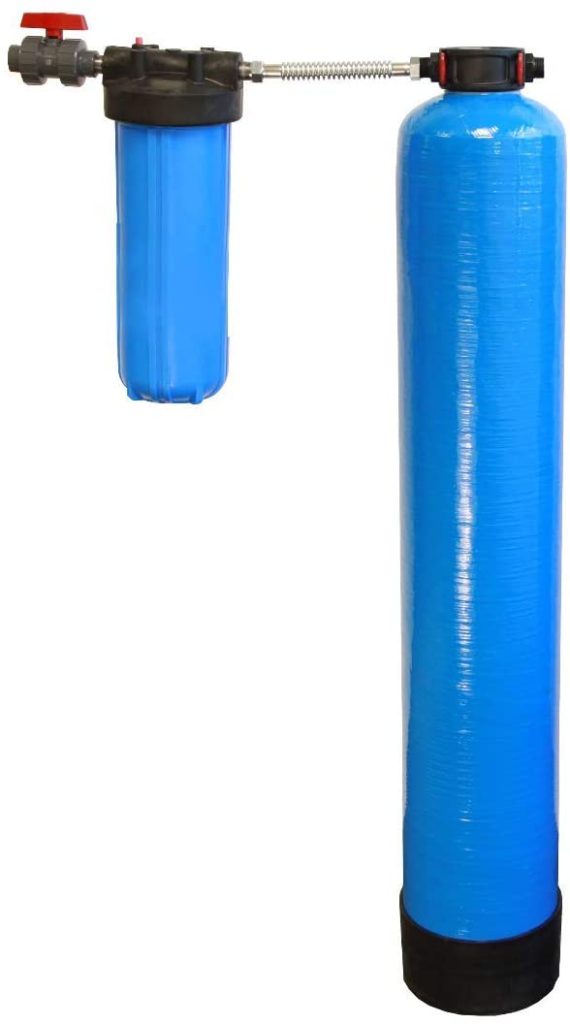
First things first, what does a water softener do, and why use a water softener?
Well, a water softener turns hard water into soft water through ion exchange. But before we get into that, we should note what hard water is, exactly.
Hard Water Defined
Hard water is water that’s filled with calcium and magnesium ions. These ions are naturally occurring in groundwater, but their concentration differs depending on where you live.
Though it’s not bad for your health, it is harsh on hair, skin, and pipes. It can create ugly limescale and may lead to long-term plumbing damage as the ions erode your home’s piping.
Much of the U.S. has hard water in their homes and wells. To prevent damage, many homeowners choose to install a water softener.
A Waters Softener’s Purpose
A water softener is typically a stand-alone tank that hooks into your plumbing. It exchanges the minerals in your home’s water supply through an ion exchange resin.
As water passes through the ion exchange resin in a water softening system, it exchanges the calcium and magnesium ions for sodium and potassium ions which are far less abrasive.
The result is soft water that’s better for your skin, hair, plates, and pipes.
Related: What is a Water Softener and How Does It Work?
Signs You Need a Water Softener
Now that you know a water softener’s purpose, you might be wondering if you need one. There are a few signs that you need a water softener in your home.
Most of them are easy to spot, but some are a little more elusive. We cover all of the significant signs here, so you can quickly identify them.
Limescale Build-Up
If you’re noticing chalky white stains on your faucets and showerhead, then you probably have hard water. Limescale buildup forms from the calcium and magnesium particles in your water supply.
If it’s left unchecked, limescale can begin clogging pipes. Initially, that means lower water pressure. Over time, it can lead to exorbitant plumbing bills.
Related: What Is The Ideal Water Hardness Number?
Faded Laundry
Though many laundry detergents have a liquid water softener included to counteract hard water effects, you may notice your laundry fades more quickly than you expect. Hard water is good at washing out colors from fabric.
It also tends to leave your towels and shirts stiff and scratchy rather than soft. If you notice your once favorite comfy tee suddenly feels like a worn dishrag, it may be time to invest in a water softener.
Fragile Glassware
You can yell at your spouse or partner all you want for breaking all your stemware, but it may not be their fault. Abrasive hard water weakens glassware over time and can make it extra fragile.
Plus, hard water tends to stain glass. Though you can remove the stains with a simple vinegar soak, they’ll continue to reoccur as long as you have hard water.
Plumbing Issues
If you have steel or iron pipes, limescale buildup and hard water abrasion can be a major issue. The pipes may erode or clog with buildup, which leads to frequent plumber calls and subsequent bills.
Copper and PVC pipes are more resistant to hard water, but given enough time, they too are susceptible to limescale buildup.
If the pipes don’t clog, the buildup can affect valves which leads to leaky appliances. If you find small puddles around your dishwasher or washing machine, hard water and limescale buildup may be to blame
High Water Bills
A higher than average water bill, despite regular usage, can be a sign that your water is laden with heavy minerals.
Hard water buildup in pipes may affect water pressure. If that happens, you’ll have to pull more water into your home to achieve everyday tasks, like filling up the bathtub or washing machine.
Sink Stains
If you notice white marks in your sink, you probably have hard water. With a stainless steel sink, this is easy to see and easy to remove. A wipe with vinegar can get rid of it for you.
However, the problem will continue to reoccur until you install a water softener.
Skin and Hair Issues
Dry, brittle hair and blocked blackhead-filled pores may not be signals of a bad beauty routine. You could be doing everything right when it comes to skin and haircare, and hard water could be to blame.
Alternatively, your skin may feel dry, itchy, and rough. That’s because the hard water blocks soaps and shampoos from fully dissolving, so remnants remain to block your pores and dry out your hair.
If you stay in a hotel or at a friend’s house and notice your skin or hair feels better, it’s time to do something about the hard water in your home.
Related: What is the Average Lifespan of a Water Softener?
Final Thoughts
Hard water comes with buying a home or building in certain areas; you can’t change that. You can install a water softener to mitigate its effects.
There are many water softener benefits, and that makes installing one in your home a no-brainer. Not only will it ensure your pipes are free of potentially harmful limescale buildup, but you’ll likely end up with softer skin and hair too!
And those are just a few of the many benefits of a water softener. A high-quality system will last for years to come. So if you have hard water, it’s time to invest in a water softener. Your pipes, hair, skin, and appliances will appreciate it.

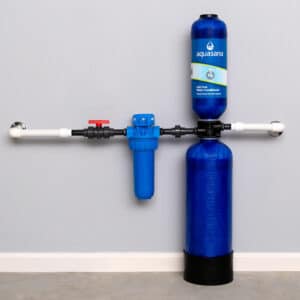
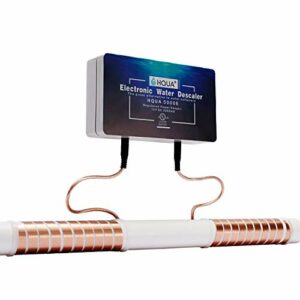
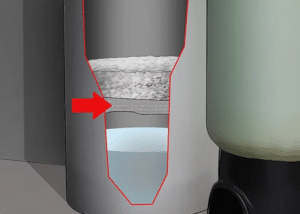
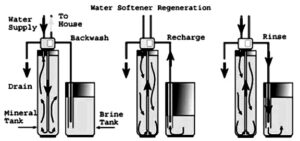
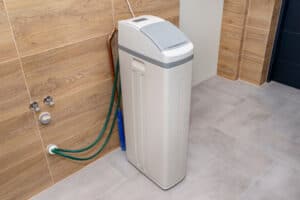
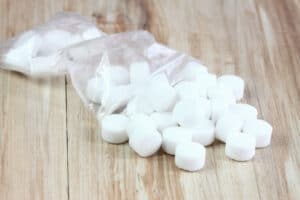
I’d like to lower my water bills. So looks like I am getting a water softener. Besides, it would surprise all of my guests when they notice how soft their skin is.